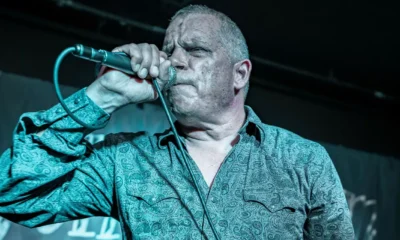Business
Arizona Confronts Unprecedented Shutdown as House Moves Forward with Fateful Budget Plan

In a developing political showdown, Republicans in the Arizona House of Representatives approved a continuation budget that Governor Katie Hobbs has vowed to veto, raising the specter of a potential government shutdown next week.
The deadline to finalize the fiscal year budget is June 30, compelling lawmakers to secure a spending plan to avoid agency closures. However, internal GOP conflicts are at the heart of the impasse, with the House and Senate unable to agree on budget allocations.
A $17.6 billion spending proposal was initially crafted in collaboration between the Senate and Hobbs. This effort faltered after House Republicans withdrew from negotiations, leading them to propose their own budget filled with conservative priorities, which Hobbs dismissed as “dead on arrival.”
Despite attempts to mediate, the Senate amended its budget to include some House Republican goals. However, the tentative agreement crumbled, prompting the Senate to pass its bipartisan plan and prepare to conclude the legislative session. Meanwhile, the House strategized on passing a continuation budget to keep government operations afloat after July 1.
After a party-line vote, House Republicans touted the continuation budget as a means to facilitate further negotiations. Nonetheless, Hobbs has already signaled her intention to veto it. A spokesperson for her office reiterated this stance in response to the House’s actions.
The Senate is scheduled to reconvene, with President Warren Petersen stating his intention to pass the continuation budget out of respect for the House. “We will pass out the budget they send over,” he remarked, emphasizing the complexities of reaching a consensus within a divided government.
During discussions, members of the House Appropriations Committee expressed concerns regarding the lack of funding in the proposed budget. Jeff Hawkins, representing the Arizona State Troopers Association, warned that the absence of allocated funds could ground critical aircraft, jeopardizing emergency response capabilities. “If you have an emergency and need rescue, don’t call DPS. Rangers won’t respond,” he cautioned.
No additional funding is earmarked for the Arizona Department of Public Safety in the continuation budget, which has sparked calls for a special session to address these pressing issues. House Appropriations Chairman David Livingston acknowledged the concerns but indicated he couldn’t make changes immediately.
Arizona has never faced a government shutdown on this scale, a scenario common at the federal level but unprecedented in the state’s history.
Tensions escalated late Tuesday as the continuation budget was voted on, with Democrats criticizing the approach and Republicans defending it as fiscally responsible. Minority Leader Oscar De Los Santos condemned the budget, asserting there was “zero percent chance this gets signed into law.” He urged a vote on the bipartisan Senate budget that accommodates various priorities, including pay raises for public safety personnel.
Republicans insisted that their continuation budget is a simple solution to prevent economic downturns akin to those faced in the early 2000s. Livingston remarked on the clarity of the proposal, stating, “Sometimes, people just can’t wrap their heads around simple.”
Some Republican members voiced skepticism about the budget process, suggesting it was a tactical maneuver aimed at staging a confrontation with Hobbs. Representative Alex Kolodin suggested that the continuation budget serves as a vehicle to push through the Senate bill, implying that it jeopardizes future state governance under Democratic leadership.
As the Arizona Senate prepares to review the continuation budget, the ongoing discord illustrates the challenges of navigating budget negotiations within a divided legislative body. Speaker Steve Montenegro emphasized the need for serious deliberation, asserting that no lawmaker desires a shutdown.
















